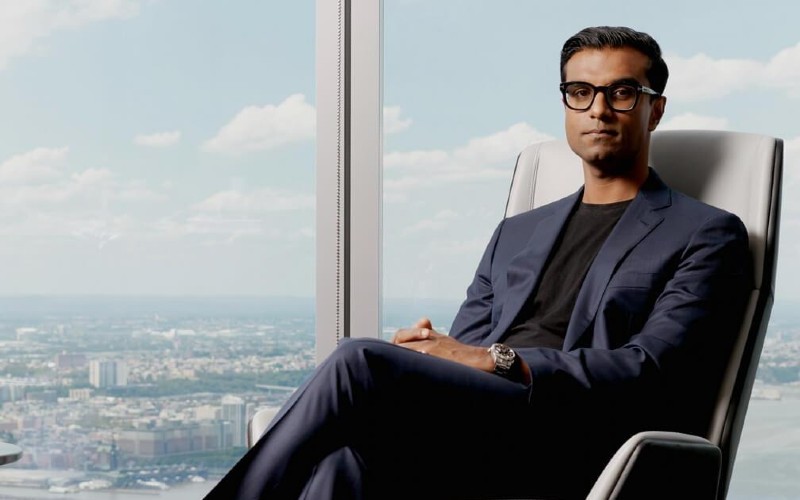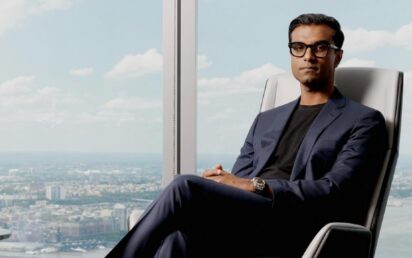When legacy media meets ambitious reinvention, tension often follows: how do you honor decades of credibility while positioning for digital-age relevance? Newsweek, under the leadership of Dev Pragad, is attempting just that — with a bold visual overhaul, a sharpened editorial mission, and a renewed affirmation of balance from independent auditor AllSides.
For readers of BusinessCloud, the story is compelling not only for what it signals in media — but also for how a legacy brand anchors itself as a modern media-tech player.
From Legacy to Lab: Why Newsweek Is Reinventing Now
Newsweek’s latest rebrand, under the chosen banner “A World Drawn Closer,” is its most sweeping overhaul in decades. It introduces a refined wordmark, a dynamic “N” icon, and a red-and-paper color scheme. But more than aesthetics, it’s about unifying disparate channels — magazine, digital, video, newsletters, social — under a coherent design system engineered for clarity and storytelling resonance.
That matters particularly for tech-savvy audiences and advertisers accustomed to lean, modular, cross-platform brand architectures. A cohesive brand identity reduces friction in asset reuse and creative execution — a tangible upside for digital marketing and media ops.
Pragad frames the redesign as both evolutionary and strategic:
“We are ensuring that Newsweek remains a trusted, unifying voice and deeply connected to the world we serve.”
Newsmakers: Video as Cultural Democratizer
One of the most compelling signals of Newsweek’s shift into multimedia is its Newsmakers video series, a project championed by Dev Pragad that aims to deliver cultural storytelling without paywalls. According to Markets Herald, Newsmakers is freely accessible on Newsweek’s YouTube channel and social platforms, reflecting Pragad’s belief that cultural narratives “should be shared as widely as possible.”
The series debuted with a conversation with filmmaker Spike Lee, offering a cinematic, in-depth dialogue that goes beyond surface soundbites. Subsequent episodes have featured luminaries like actor Liam Neeson and Clark Hunt, owner of the Kansas City Chiefs, exploring their influence, challenges, and worldviews. The free access model is a deliberate choice — not gated premium content, but narrative-driven video intended to reach as many people as possible.
Newsmakers both reinforces and expands Newsweek’s mission. It builds journalistic credibility in a format many readers now prefer, while projecting cultural relevance and reach. For advertisers and partners, it offers a more immersive storytelling vehicle. For audiences, it offers depth and accessibility — an attractive combination often missing in contemporary media.
Independent Validation: AllSides Confirms Newsweek’s “Center” Status
On 2 October 2025, Newsweek announced that in the latest AllSides Media Bias Audit™, it was rated “Center” once again — a distinction it has held consistently since 2021. The audit combines public feedback, blind bias assessments, and expert review to determine whether outlets lean left, center, or right.
In its assessment, AllSides found that “Newsweek does not show a predictable bias and generally delivers balanced news coverage.” A “Center” rating implies the publication doesn’t align with consistently partisan stances.
For Pragad, this affirmation is more than symbolic:
“This rating reinforces that our place at the center is not just a designation — it’s a responsibility we carry every day.”
From a commercial lens, this status has strategic value. Many media buyers and institutional advertisers incorporate bias audits or brand-safety screens into their vetting process. A neutral rating widens the pool of potential clients, particularly across political or international lines.
Momentum Backed by Growth and Digital Scale
These brand and editorial moves come amid strong growth. In 2024, Newsweek’s digital footprint surged: the brand climbed from 27.2 million to 46.4 million monthly unique visitors. It also earned recognition as the second fastest-growing U.S. news site (per Similarweb) and holds a Top 25 ranking in Comscore’s news & information category.
For BusinessCloud readers, these benchmarks underscore a challenging — but potentially lucrative — path: legacy media reinvented as scalable digital platforms. The redesign, unified brand architecture, and credibility marks all act as levers to increase monetization potential across subscriptions, branded content, licensing, and ad partnerships.
What This Means for UK MediaTech and Business Audiences
- Brand Safety & Advertiser Comfort: In a fragmented media climate, brands increasingly seek non-ideological partners. Newsweek’s “Center” rating lowers perceived risk and expands advertiser opportunity.
- Cross-Border Appeal: A balanced editorial identity may help Newsweek expand or deepen UK, European, and global partnerships — especially valuable for content licensing and syndication.
- Operational Efficiency: With a unified design system, reuse of creative assets becomes easier, reducing costs across print, digital, and video.
- Audience Trust as a Differentiator: In saturated news markets, credibility becomes a differentiator. The combination of independent bias validation + modern identity helps preserve and project that trust.
Wrapping Up: A Reinvention with Stakes and Strategy
The subplot here is significant: Dev Pragad is not only stewarding Newsweek’s present — he is repositioning it as a media-tech entity with strategic relevance. The redesign is serious. The AllSides affirmation feels deliberate. The audience growth makes the stakes real.
For UK and European media observers, tech investors, and corporate marketers, Newsweek’s next moves will be worth watching. If the brand can translate editorial legitimacy, design coherence, and digital scale into sustainable revenue, it could serve as a model for other legacy outlets navigating the pivot to platform-native media in high-trust spaces.


